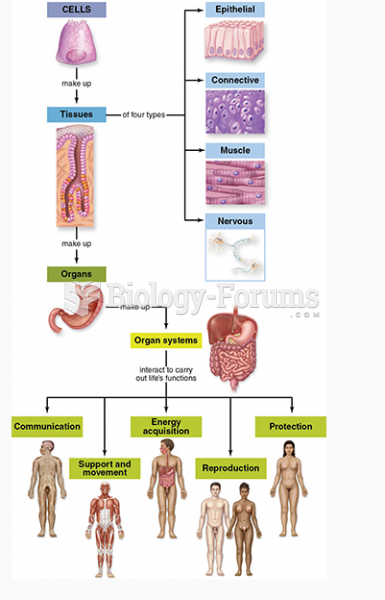|
|
|
Patients should never assume they are being given the appropriate drugs. They should make sure they know which drugs are being prescribed, and always double-check that the drugs received match the prescription.
Liver spots have nothing whatsoever to do with the liver. They are a type of freckles commonly seen in older adults who have been out in the sun without sufficient sunscreen.
Persons who overdose with cardiac glycosides have a better chance of overall survival if they can survive the first 24 hours after the overdose.
A seasonal flu vaccine is the best way to reduce the chances you will get seasonal influenza and spread it to others.
When blood is exposed to air, it clots. Heparin allows the blood to come in direct contact with air without clotting.







